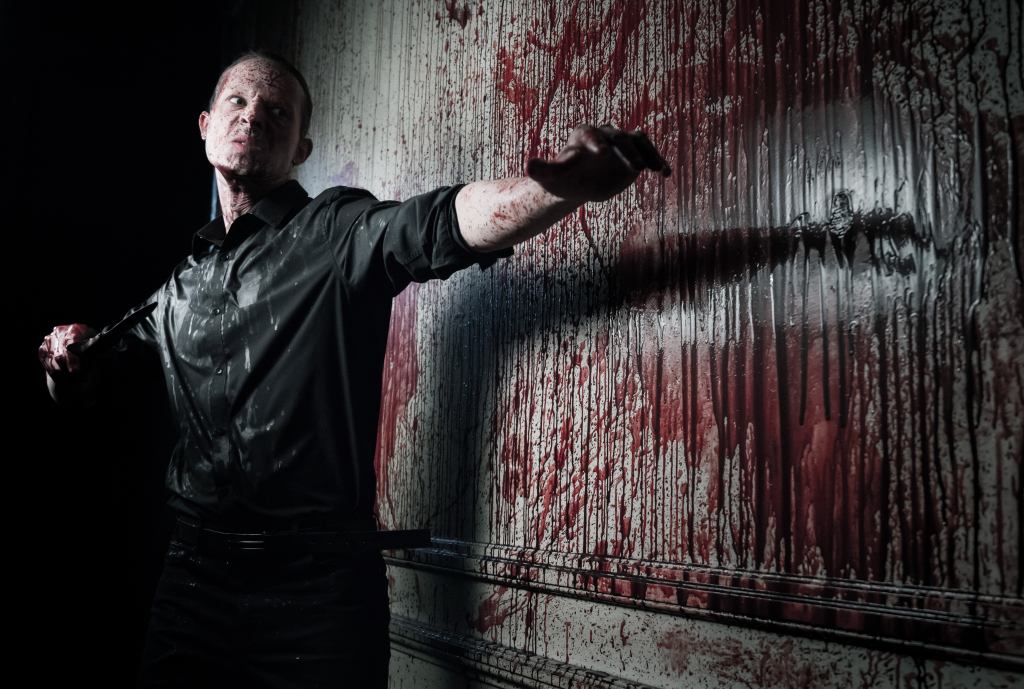
Within the expansive walls of a run-down, isolated home is a massive, seeping, undulating mound of black, oily dirt cradling the trauma and hereditary evil of the twisted family at the center of Karim Ouelhaj’s Megalomaniac. Oftentimes when horror dips beneath the surface of the genre water and plunges into the depths of the extremity iceberg, there’s a loss of something – a sacrifice of art for mindless gore, story for incessant abuse, character for caricature – but in Megalomaniac, Ouelhaj presents the horrific torture and brutality enacted on screen in a near fantastical, mythical manner, opening the door to a more nuanced examination of free will vs. determinism within the confines of the generational structure of abuse.
In a naturalistic style that resembles the best of the New French Extremity subgenre, Megalomaniac follows Martha (Eline Schumacher) and Felix (Benjamin Ramon) through the labyrinthine halls of their hellish home, haunted by the demons of the victims of the family trade. The images of blackened flesh and red-eyed bodies lurking and jerking in the corners and on the walls conjure a history of violence that is alluded to but not expressly shown. At the onset, we’re told the lore of the Butcher of Mons, a notorious serial killer who ravaged the Belgian city of Mons between 1996 and 1997 before vanishing without a trace. Known for the precise dismemberment and dispensing of bodies in black bags along country roads, the Butcher is a real-life killer whose story has been adopted in Megalomaniac, meeting the Butcher’s adult children and continued legacy in present day.

Martha and Felix have a fascinating relationship that toddles between familial and erotic love, though the line remains firmly uncrossed outside of Martha’s fantasies. Felix spends his days and nights carrying on the Butcher’s work, brutalizing women by random, sometimes taking them back to the house, where it feels their souls are captured and possibly fed to the hibernating spirit of the Butcher. Martha works a humiliating night job as a janitor at a local factory, where she suffers consistent sexual assault at the whims of cruel co-workers, causing her mind to begin to fracture and morph into someone with desires and urges closer in deviance to her brother than an innocent.
The bloodshed and humorless storytelling on display is in some moments stunning, in others deeply disturbing, and the utilization of artistic imagery and an evocative score (composed by Simon Fransquet and Gary Moonboots) filled with alluring tones and deep, droning throat-singing elevates Megalomaniac from the archetypal extreme horror film. Less of a condemnation and more of a meditation on the cyclical nature of violence and abuse, the film is one of the best of last year and goes to show the unnerving power of original and darkly beautiful filmmaking.

Megalomaniac is available from Dark Star Pictures to stream on Shudder.
*** I classify this film as Extreme Horror, a subgenre that most often contains disturbing imagery and themes. If you have questions about content that I haven’t addressed in this review please comment and ask!***
Film Rating: 💀💀💀💀.5/5

